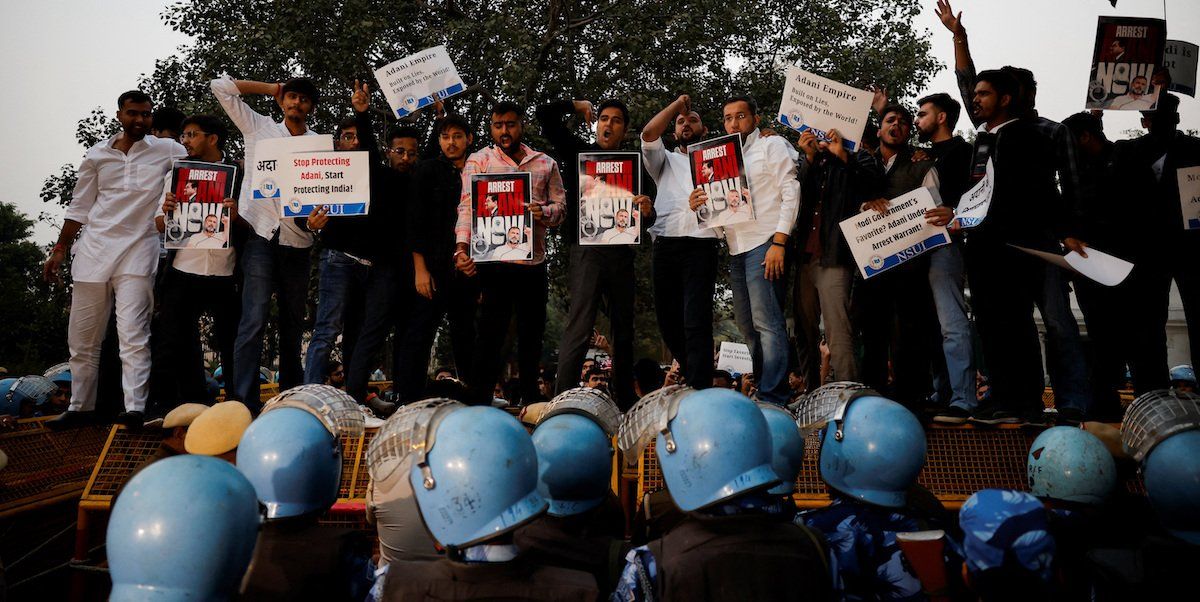250 million: The US Department of Justice charged Indian billionaire Gautam Adani for his alleged role in a yearslong bribery scheme, which included promising $250 million to Indian government officials for solar energy contracts. Adani is a key ally of Indian Prime Minister Narendra Modi, and the opposition Indian National Congress is calling for a parliamentary investigation into the affair.
2: Nicaragua may soon have two presidents if Daniel Ortega’s proposal to elevate his wife to a “co-president” position passes the legislature, which is likely. The couple will also see their terms expanded to six years from five, deepening Ortega’s control over the small Central American state.
16: Teens under age 16 in Australia may soon find themselves kicked off social media if a bill in parliament banning children from sites like TikTok, Facebook, or Snapchat passes. The bill has wide support, and research showed 95% of Australian parents and caregivers said online safety was their toughest parenting challenge.
10,000: Feel like overpaying for a guitar? Donald Trump has just the axe for you, complete with his signature, for just $10,000. You’ll get an imitation of a Gibson Les Paul, with some MAGA imagery and Trump’s scrawl, to add to your collection of Trump merch like the Bible, golden sneakers, marked-up watches and, of course, cryptocurrency.
